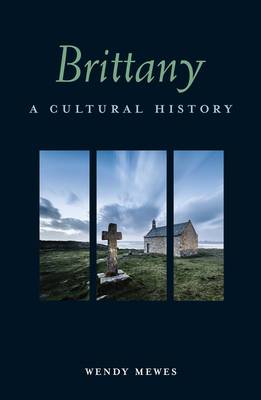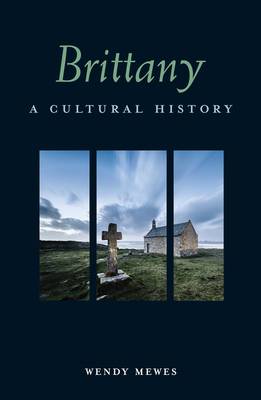
- Retrait gratuit dans votre magasin Club
- 7.000.000 titres dans notre catalogue
- Payer en toute sécurité
- Toujours un magasin près de chez vous
- Retrait gratuit dans votre magasin Club
- 7.000.000 titres dans notre catalogue
- Payer en toute sécurité
- Toujours un magasin près de chez vous
22,95 €
+ 45 points
Description
A cultural guide to a region on the edge of europe that has been visited by the Romans, Franks, Vikings, Anglo-Saxons and Germans. Brittany's richly layered landscape has contributed depth and character to the region's traditional oral culture, from stories of the sea and shore to tales of misty moors, sacred hill-tops and secretive forests. Evangelizing Dark Age saints from Britain laid the foundations of Breton language and society, imposing Christianity on the landscape and in the minds of the people. Their legacy rests visually in the prolific spread of chapels, churches and cathedrals, and the Celtic language still preserved with pride. Right on the edge of Europe, the region has been vulnerable to assault and exploitation. Franks, Vikings, English, Germans have all made their mark, resisted at every turn with resilience. The problematic relationship with neighboring France before and after Union in 1532 has left wounds to this day. The rapacity of the ancien régime was followed by deprivation of privileges during the Revolution, attacks on religion and subsequent suppression of the Breton language which struck at the very heart of Brittany. The nineteenth century combined economic stagnation with growing interest in Celtic roots, fuelling the search for that ultimate chimera--Breton identity. Historians and poets began to assert the distinct character of the region, while foreign travelers also left accounts of a people speaking an unfathomable language and appearing a race apart. This "primitivism" coupled with the lure of the mysterious megaliths created an image of wild exoticism, and made Brittany a prime target for tourists and artists. Today the past is perpetuated and the future welcomed in a packed festival calendar of Celtic music and Breton culture. Yet for all its modernity, Brittany remains as intensely complex and challenging to preconceived notions as ever. -- Landscape and legends: Marches of Brittany; Druids and megaliths; St-Malo and sea adventures; mysteries of the Monts d'Arrée; Merlin in the Forêt de Brocéliande. - Complexity and ambiguity: part of France yet a separate world; nationalism, regionalism, resistance, unity and division of language; four departments or five? - Writers and artists: Chaucer, Balzac, Hugo, Flaubert, Ernest Renan, Thomas Adolphus Trollope, Arthur de la Borderie, Mathurin Méheut, Max Jacob, Yves Tanguy.
Spécifications
Parties prenantes
- Auteur(s) :
- Editeur:
Contenu
- Nombre de pages :
- 256
- Langue:
- Anglais
- Collection :
Caractéristiques
- EAN:
- 9781566560887
- Date de parution :
- 01-02-16
- Format:
- Livre broché
- Format numérique:
- Trade paperback (VS)
- Dimensions :
- 132 mm x 201 mm
- Poids :
- 362 g







